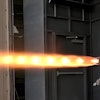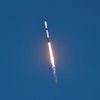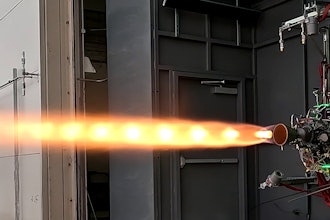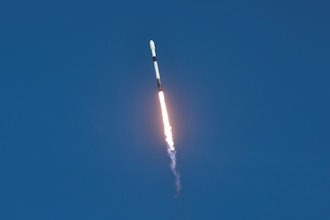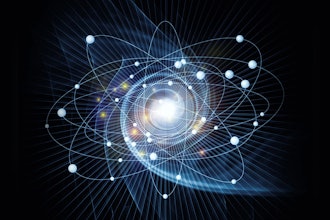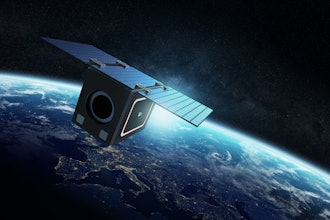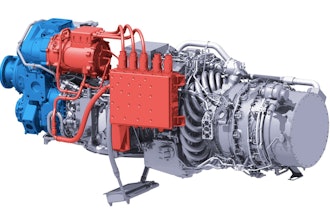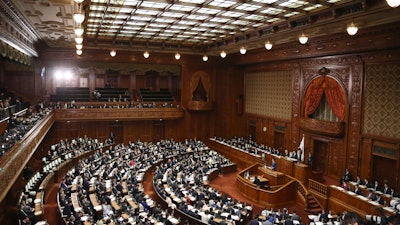
TOKYO (AP) — Prime Minister Shinzo Abe said Monday that Japan will form a space defense unit to protect itself from potential threats as rivals develop missiles and other technology and the new unit will work closely with its American counterpart recently launched by President Donald Trump.
The Space Domain Mission Unit will start in April as part of Japan's Air Self-Defense Force, Abe said in a policy speech marking the start of the year's parliamentary session.
He said Japan must also defend itself from threats in cyberspace and from electromagnetic interference against Japanese satellites. Concerns are growing that China and Russia are seeking ways to interfere, disable or destroy satellites.
“We will drastically bolster capability and system in order to secure superiority” in those areas, Abe said.
The space unit will be added to an existing air base at Fuchu in the western suburbs of Tokyo, where about 20 people will be staffed ahead of a full launch in 2022. The role of the space unit is to conduct satellite-based navigation and communications for other troops in the field, rather than being on the ground.
Abe's Cabinet in December approved 50.6 billion yen ($460 million) budget in space-related projects, pending parliamentary approval.
The unit will cooperate with the U.S. Space Command that Trump established in August, as well as Japan's space exploration agency, Japan Aerospace Exploration Agency.
Underscoring the need to step up cyber security, Mitsubishi Electric Corp. revealed Monday that it had suffered a cyber attack last June that may have compromised personal and corporate data involving thousands of its job applicants, employees and retirees. Mitsubishi said there was no breach of sensitive data in the company's operations involving defense, space, transportation, electric power and other businesses sectors. It promised to enhance security measures and monitoring.
Abe has pushed for Japan’s Self-Defense Force to expand its international role and capability by bolstering cooperation and weapons compatibility with the U.S., as it increasingly works alongside American troops and as it grows concerned about the increasing capabilities of China and North Korea.
Abe, in marking Sunday's 60th anniversary of the signing of Japan-U.S. security treaty, vowed to bolster Japan's capability and cooperation with the U.S., including in the areas of space and cyber security.
He said he is determined to settle Japan's “unfortunate past” with North Korea, as he hopes to “sum up” his country’s postwar legacies before his term expires next year.
He reiterated his intention to hold talks with North Korean leader Kim Jong Un without the conditions he had demanded in the past — denuclearizing the Korean Peninsula and resolving the decades-old issue of abductions of Japanese citizens by North Korea.
Part of Abe's plan while in office is to achieve his long-cherished goal of revising Japan's U.S.-drafted constitution that prohibits use of force in settling international disputes. Despite Abe's push, chances are fading for the revision due to a lack of public interest and the opposition's focus on other controversial issues such as Japan's recent dispatch of naval troops to Middle East and questionable public record-keeping at Abe's annual cherry blossom-viewing parties.
In a sign of a thaw in Japan’s recently tense relations with South Korea, Abe said he planned to cooperate closely with South Korea in dealing with a harsh security environment in northeast Asia.
Abe, however, repeated his demand that South Korea resolve the issue of compensation for the former Korean laborers during Japan’s 1910-1945 colonial rule. “I hope (South Korea) to keep its promise between the two countries and build future-oriented bilateral relations,” he said.

